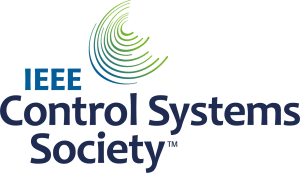T1: Active Vision Methods in Autonomous Navigation
Tuesday, June 28, 2022, 9:00 AM – 5:15 PM
Organizers
Dr. Konstantinos Tsintotas, Democritus University of Thrace, Greece
Dr. Nitin J. Sanket, University of Maryland, College Park, USA
Prof. Antonios Gasteratos, Democritus University of Thrace, Greece
Prof. Yiannis Aloimonos, University of Maryland, College Park, USA
Workshop Summary
In applications involving deployment of mobile robots, it is a fundamental requirement for the robot to perceive its environment and to decide about its ability to navigate, as well as how to navigate in general. Currently, every mobile robot is equipped with on-board sensors that contribute to observing the working environment and to collect and process data. However, when any mobile robot starves from computational and sensing resources, simple approaches using passive perception, such as building a 3D map of the environment, fall apart. It is noted that active vision, which involves building algorithmic engines around the perception-action synergy loop, offers a promising solution as it allows for the mobile robot to actively use its sensors towards specific viewpoints according to a specific scanning strategy. Thus, the challenge in active vision systems is that the robot must decide “where to look” following a plan. Thus, vision sensors must be purposefully configured and placed at several positions with the aim to observe a target by taking actions linked with robotic perception, which, in turn, introduces active and purposeful behaviors. In particular, four modes of activeness have been formally identified: By moving the agent itself; By employing an active sensor; By moving a part of the agent’s body; By hallucinating active movements. The Workshop covers several challenging areas including Autonomous navigation; Perception-Action coupling; Driverless cars; UAVs; SWAP-Aware design; Semantic mapping and navigation; SLAM; Loop-closure detection; Visual odometry.
Schedule
| 09:00 – 09:15 | Welcome |
| 09:15 – 10:15 | Invited talk: Active Perception with Foveal Sensors: a bio-inspired strategy for resource constrained robots, Prof. Alexandre Bernardino, Instituto Superior Técnico, Portugal (virtual) |
| 10:15 – 11:00 | Coffee Break |
| 11:00 – 12:00 | Invited talk: Resilient Robotic Autonomy – Technologies and Lessons Learned from the DARPA Subterranean Challenge, Prof. Kostas Alexis, Norwegian University of Science and Technology, Norway (virtual) |
| 12:00 – 13:00 | Paper presentations |
| 13:00 – 14:00 | Lunch break |
| 14:00 – 15:00 | Invited talk: Learning to Fly: From perception to action, Prof. Davide Scaramuzza, University of Zurich, Switzerland (virtual) |
| 15:00 -16:00 | Invited talk: Navigation During Visuospatial Problem Solving, Prof. John K. Tsotsos, York University, Canada (virtual) |
| 16:00 – 16:45 | Coffee Break |
| 16:45 – 17:15 | Panel Discussion and Concluding Remarks |
This schedule is also available for download in printer-friendly (PDF) format.





